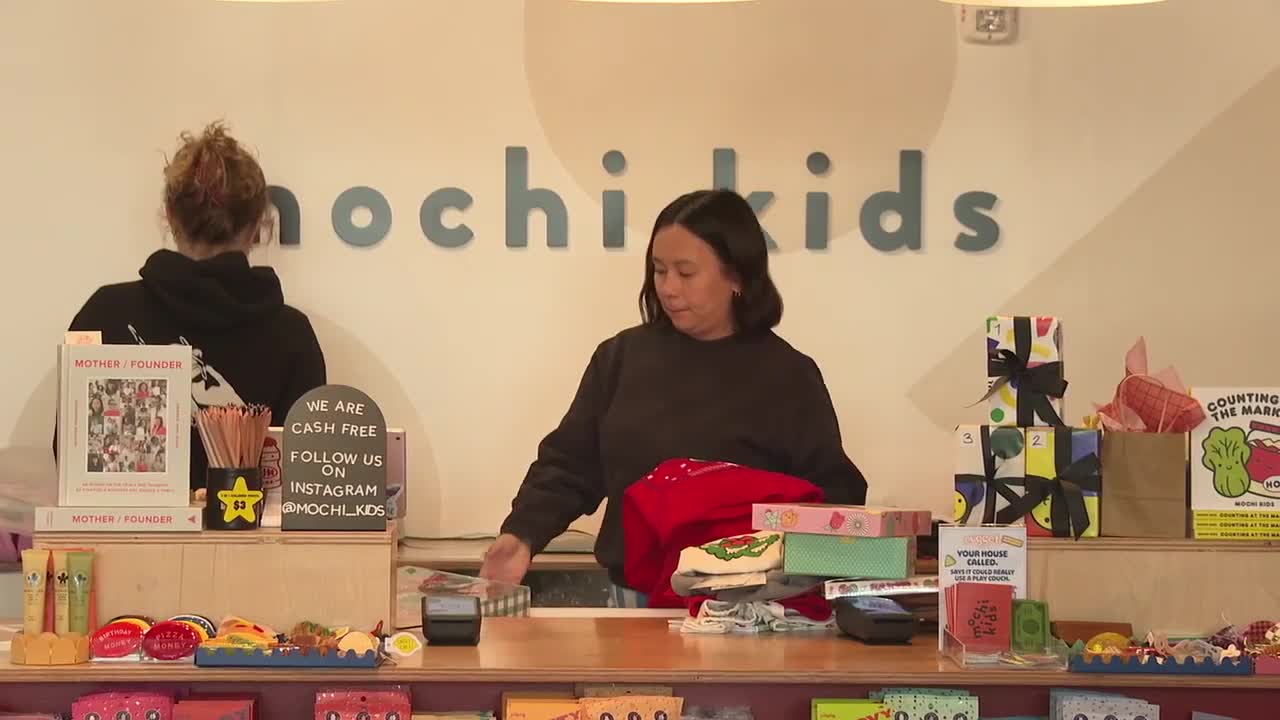SALT LAKE CITY — As the calendar nears December, the National Retail Federation predicts holiday sales will surpass the one trillion dollar mark for the first time. But how does that add up when, at the same time, officials claim consumer confidence is in bad shape?
"This is kind of the disconnect that we're seeing in the economy right now," explained Zions Bank senior economist Robert Spendlove.
According to Spendlove, a trillion dollars in holiday sales would be a 4 percent increase over last year's numbers. It would be an increase despite the federation sharing numbers that show consumer confidence hasn’t been this low in 50 years.
"That's both at the national level and at our state level. And I hear this when I talk to people that they just don't feel great about the economy, but they continue to spend," said Spendlove.
That’s just the news Amanda Stewart wants to hear as owner of Mochi Kids in the 9th and 9th shopping district. Her store features a children’s clothing line, along with toys and gifts from all over the world.
"Holiday shopping is so crucial. We'll sell probably, like, three times more during the holidays than we do during a normal month," Stewart said.
Amanda has sensed the lack of confidence in the economy and seen an increase in wholesale prices due to tariffs, forcing her to make adjustments so she doesn't price out her clientele.
"We've experienced probably about 10% price increase across the board compared to last year, and so we've definitely had to change how we buy," Stewart said. "We purchased things that are a little less expensive, knowing that some people, you know, who are spending more on groceries will have less of a budget to spend on toys this year."
Nonetheless, both the experts and those on the front lines, like Stewart, anticipate brisk sales once the holiday shopping season kicks into high gear later this month.
"Even though consumers don’t feel good about inflation, they don’t feel good about the government shutdown, they’re nervous about tariffs, we expect that in this holiday season, consumers will be spending about $890," Spendlove said.
"It's not surprising to me," added Stewart. "I think people want to have a magical experience for their families, no matter what the economic circumstances are. I think that's just part of our culture here in the U.S."



